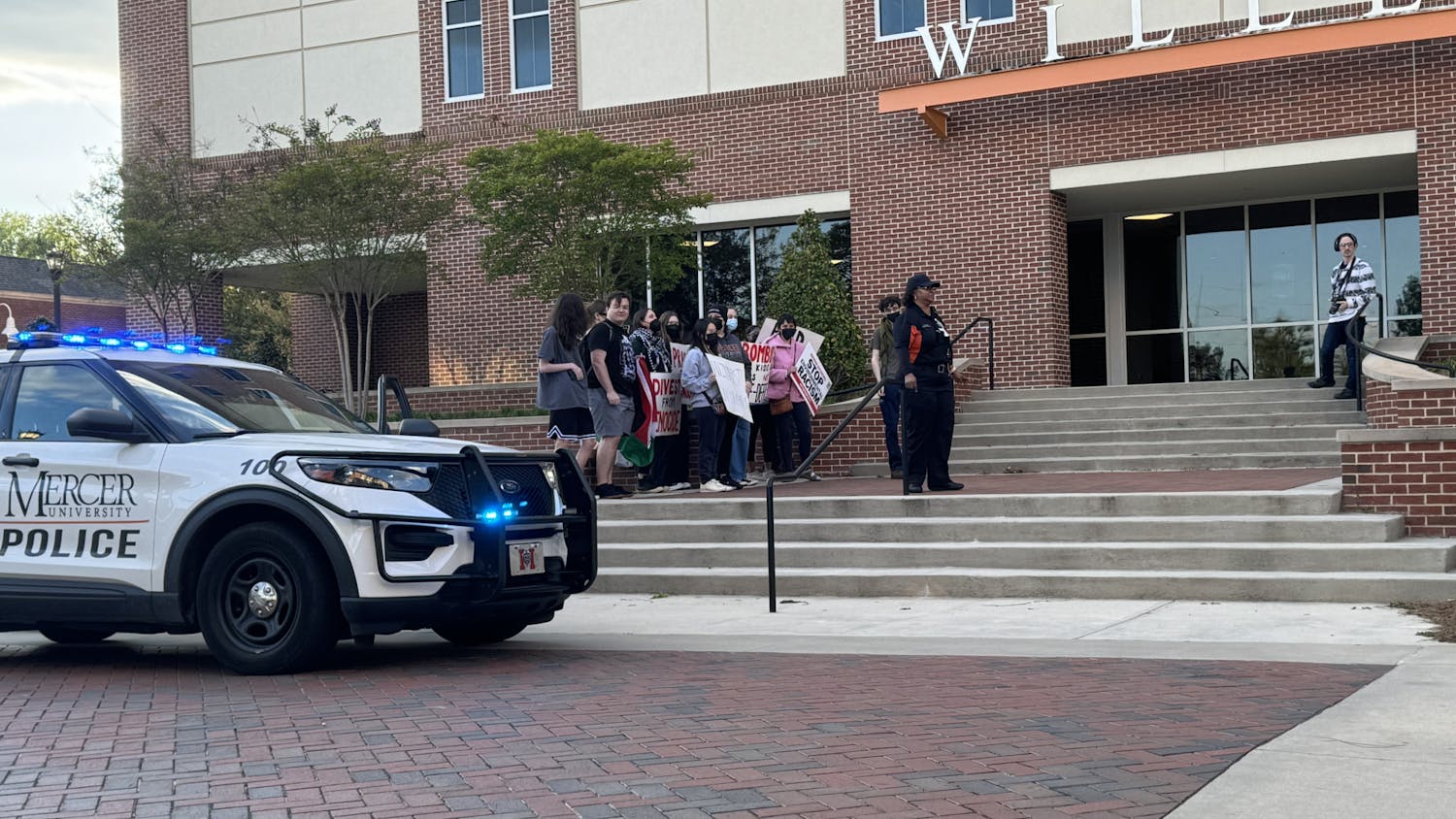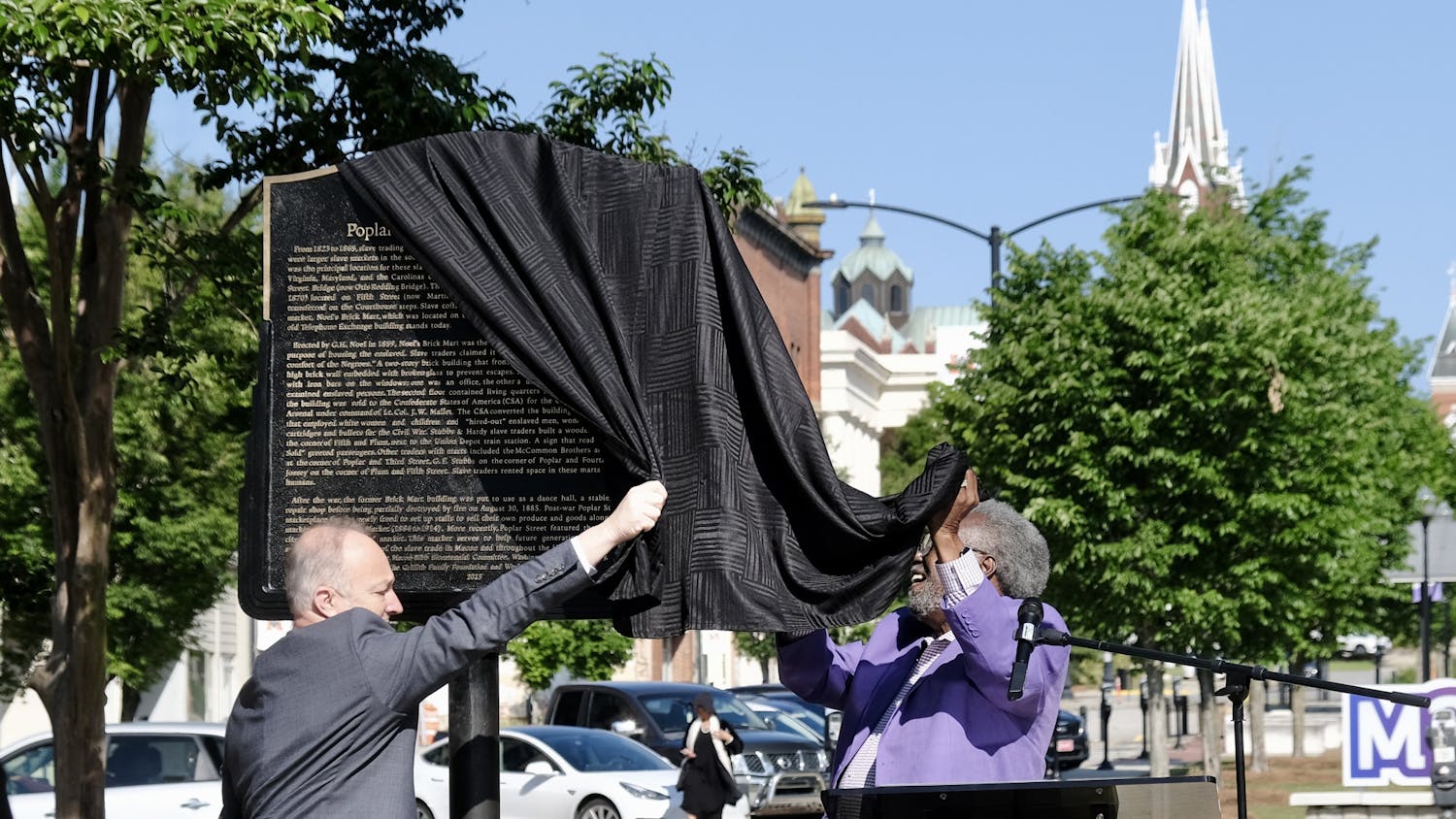Tattnall Square Center for the Arts is finally open for classes. However, there's still construction work going on outside the building. Although the building hosted its first major event last week as the community’s new center for the arts, there’s still a lot left to do.
“They [the contractors] didn’t get as far along as they hoped before we moved in,” said Scot Mann, director of Mercer’s Theatre Program as well as the Center.
One of the first difficulties with which the staff dealt in the new space was their lack of keys. “We left all our office doors open,” said Mann. The staff spent a large amount of winter break moving their offices, shops and classroom materials into the new space and beginning to unpack.
Mann said that the real challenge was the University’s decision to tear down the Nollen Building, which the university uses for storage. This building houses a lot of the furniture and props used by the Theatre Department.
“Thousands and thousands of dollars of stuff had to go out immediately, the same time we’re moving in here,” said Mann.
Having to split time between unpacking and moving into this new space as well as finding a new home for their previously stored props and furniture “split their focus.” This resulted not only in the contractors falling behind but the theatre faculty as well.
The department’s main focuses were to start classes on time in the new space and begin work on their next production, "The Tempest", the first for the Tattnall Square Center for the Arts.
Classes have officially begun, and while “the classrooms are there, the technology is not ready,” said Mann.
Mann is hopeful that the classrooms will be fully operational by the third week of the spring semester.
However, construction continues outside and in other areas of the building. “The students have to walk through a construction site,” said Mann. Confusion also occurred at the beginning of the semester because of the theatre department’s change in location, and some students were unaware that the TCA meant the Tattnall Center for the Arts, which resulted in a few late students the first day of classes.
“We had our first classes in the spaces last week,” said Mann, “I think they went pretty well” - particularly the acting class, which is now taught in a rehearsal hall with a wall of mirrors, which the program has never had before now.
The process of beginning classes with less than fully-functioning classrooms, unpacking offices, the shops and continued construction was “a little overwhelming.”
The costume shop is filled to the brim although the scene shop is the priority for the program at the moment. Marian Zielinski, professor of theatre, is teaching a stagecraft class this semester, in which the students must learn to build and design set pieces. That makes the need for the shop to be functioning dire not only to the next production but also to the classes currently in progress.
Mann estimates that it will take two full months of work in the building to get everything fully functional for the program but emphasizes that the work needed to get the building ready will not include work needed to prepare for their first production.
Due to some budget cuts and unforeseen problems, the building will be missing a few of the previously desired components.
The scene shop, located on the basement level, had originally been designed to have a lift installed in order to lift scenery pieces straight from the shop to the stage of the theatre. The lift has thus been cut from the docket, to the best of Mann’s knowledge, which will result in set pieces being carried from the shop around the building to the front door of the Center.
The lift for the lights, which would both raise and lower the lights, was also unfortunately cut from the budget, and Mann explained that the process of hanging lights would now be done on a 16-foot ladder instead.
“A lot of things are not there,” said Mann, “partially because we had to have this elevator.” The elevator that was installed makes four stops, despite the building only being two floors due to landings between the floors. This was the only way to make the building completely handicap accessible.
The Tattnall Center for the Arts will serve as a community venue although the University’s Theatre Department will have precedence during the academic year. Mann is excited about the possibilities for the new space and their upcoming production. The theatre department has not had a central location since its move to their “temporary space” in the Back Door Theatre 35 years ago.
“Theater is a collaborative art,” said Mann. Tattnall Square Center for the Arts has united each part of the theatre department into a unified location.
The department’s first production will be Shakespeare’s “Tempest” in April of this year. Auditions are Jan. 27th and 28th from 6:30 to 9 p.m. All are welcome to audition, no monologue required.
Edit: There was miscommunication on some of the points in the story about the new Arts Center. There will, in fact, be a lift for the shop and for the light grid. Many items have yet to be purchased and are slated for an arrival at a later date, before the first production.

The new Tattnall Square Center for the Arts has a large theater room to hold performances and facilitate rehearsals.
Tattnall Square Center construction continues despite opening its doors





